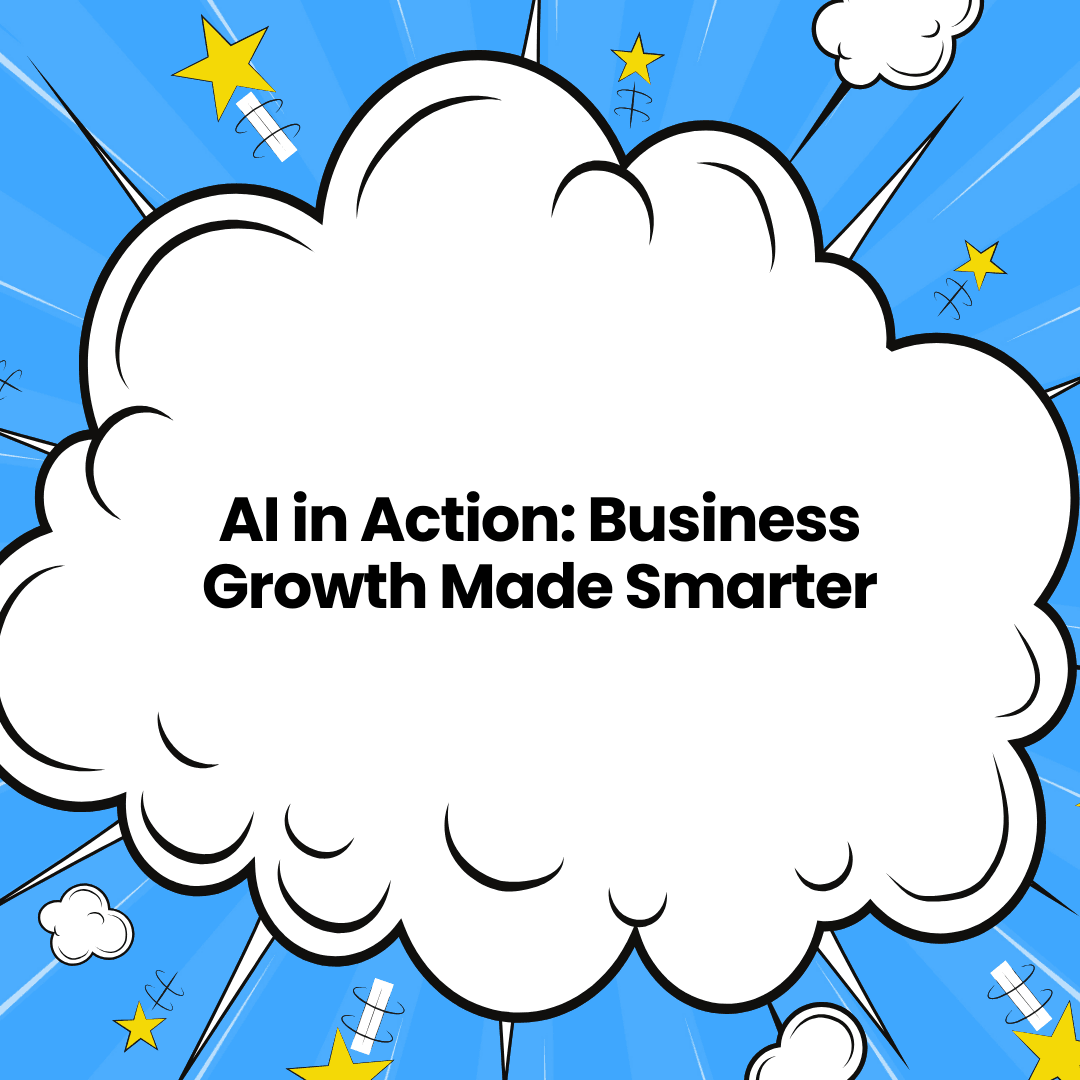In today’s fast-paced, technology-driven world, businesses are increasingly turning to artificial intelligence (AI) to gain a competitive edge. AI’s transformative potential has made it a cornerstone for companies aiming to scale, optimize operations, and enhance customer experiences. In this blog, we’ll explore actionable strategies to harness AI for business growth.

Enhancing Customer Experience
AI-powered tools like chatbots, sentiment analysis, and recommendation engines revolutionize customer interactions. By leveraging AI, businesses can improve customer experience in several ways. First, chatbots handle customer inquiries at any time, ensuring consistent service delivery. Additionally, AI algorithms analyze customer data to offer tailored product or service recommendations. Moreover, sentiment analysis and predictive analytics anticipate customer preferences, enabling proactive engagement. For instance, e-commerce giants like Amazon recommend products based on browsing history, which increases sales and improves user satisfaction.
Streamlining Operations
Operational efficiency is a critical factor in business growth, and AI automates repetitive tasks while optimizing workflows. Businesses can benefit significantly by applying AI in various areas. For example, AI tools predict demand, helping companies avoid overstock or shortages in inventory management. Furthermore, robotic process automation (RPA) streamlines tasks like invoice processing, which allows employees to focus on higher-value work. Additionally, machine learning models analyze vast datasets to enhance logistics and delivery times. These advancements not only save time but also reduce costs, making businesses more agile and responsive to market demands.
Data-Driven Decision Making
AI thrives on data, making it a powerful ally in decision-making. Businesses can leverage AI to analyze market trends, optimize pricing strategies, and monitor performance. For instance, predictive analytics identify emerging market opportunities, helping businesses stay ahead of competitors. Furthermore, AI dynamically adjusts pricing based on demand, competition, and customer behavior, which maximizes profitability. Additionally, real-time AI dashboards provide insights into key performance indicators (KPIs), allowing businesses to act quickly. By relying on data rather than intuition, companies minimize risks and maximize returns.
Innovating Products and Services
AI fosters innovation by uncovering insights that lead to new products or services. For example, AI tools like generative design create optimized product prototypes that meet specific requirements. Furthermore, predictive models identify untapped customer needs, which leads to the development of new services. Additionally, AI-driven simulations assess product performance in various market conditions, ensuring a higher chance of success. By leveraging these capabilities, businesses can stay ahead of the curve and meet evolving customer expectations.
Boosting Marketing Efforts
Marketing is one of the most fertile grounds for AI application. AI enhances marketing efforts by enabling targeted campaigns, content optimization, and performance tracking. For instance, machine learning analyzes audience behavior to deliver highly personalized ads, increasing engagement. Furthermore, AI tools suggest the best times to post, trending topics, and effective content formats, which boost content visibility. Additionally, AI-powered analytics track campaign performance and suggest improvements, ensuring better results. For example, platforms like Mailchimp use data to segment audiences and craft personalized messages, leading to higher engagement rates.
Enhancing Security
AI plays a vital role in safeguarding business assets and preventing cyberattacks. By integrating AI, businesses can enhance their security measures effectively. For instance, AI systems monitor threats and respond to anomalies in real time, preventing potential breaches. Furthermore, machine learning algorithms detect unusual transactions or behaviors, which helps identify fraud. Additionally, AI tools encrypt sensitive data and ensure compliance with regulations, strengthening data security. Investing in AI-driven security measures not only protects a business’s reputation but also builds customer trust.
Conclusion
AI is no longer a futuristic concept; it has become an essential tool for businesses striving for growth. By incorporating AI into customer experience, operations, decision-making, innovation, marketing, and security, companies unlock new levels of efficiency and profitability. As you consider implementing AI, start small by identifying areas where it can have the most immediate impact. With the right strategy, AI transforms challenges into opportunities and aspirations into achievements.
Feel free to contact us for a free consultation.

